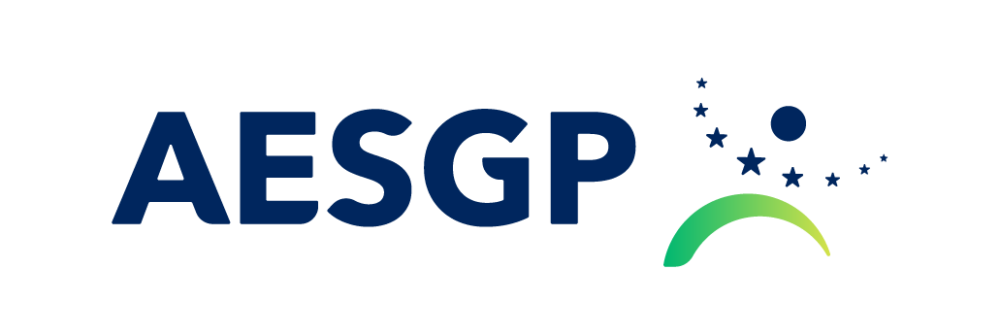Sustainable Self-Care
Minimising the impact of self-care products on the environment, while preserving access to effective treatment and wellness options for people across Europe, is a critical issue for AESGP and its members.
Monitoring environmental developments
AESGP has been monitoring environment-related policy developments on the water framework, drinking water and wastewater treatment directives to provide accurate data on pharmaceuticals, making sure that environmental concerns are linked to healthcare goals, where patients retain access to the products they need. AESGP assisted its members in providing the European Commission with validated data for the Environmental Quality Standards (EQS).
AESGP and EFPIA also appointed Bengt Mattson (LiF – the Swedish Association of the Pharmaceutical Industry) as a dual representative to the European Commission and Committee of the Region’s Zero Pollution Stakeholder Platform. This stakeholder platform is responsible for helping to implement flagship initiatives within the framework of the Zero Pollution Action Plan, bringing together expertise and defining a common vision on how to achieve the defined objectives.
Activities under the Inter Association Task Force on Pharmaceuticals in the Environment
AESGP has been a long-time member of the Industry’s Inter Association Task Force on Pharmaceuticals in the Environment (IAI PiE TF). In 2021, the Task Force carried out an in-depth review of the Eco-Pharmaco-Stewardship programme which resulted in the update of the group’s main policy document “Care for People & Our Environment”.
The IAI PiE Task Force also met with several stakeholders, such as EurEAU and Healthcare Without Harm, to understand their perspective on pharmaceuticals in the environment (PiE).
Investing in research projects
The IAI PiE Task Force has invested in scientific projects such as PREMIER – Prioritisation and Risk Evaluation of Medicines in the Environment (started in 2020). The importance of such projects is undeniable in gathering solid data to identify and prioritise the active pharmaceutical ingredients most likely to pose a risk to the environment.
Reducing discharges from manufacturing plants
Under the same task force, the European pharmaceutical industry has developed initiatives to further reduce discharges from manufacturing plants through the exchange of good practices. Improvements have been identified through a risk-based approach, developing a “maturity ladder” and a Guidance for the Responsible Management of Manufacturing Effluents to help companies and their suppliers to gauge their performance and continuously improve.
Towards an extended Environment Risk Assessment (eERA)
The current legislation on Environment Risk Assessment (ERA) requires a pharmaceutical company to assess environmental risk before medicines are approved and launched, or when they are going to be used in new indications or combinations. The European pharmaceutical industry believes that the ERA should be reviewed and, if necessary, updated throughout the lifecycle of a product to reflect the latest information on the potential impact of the medicine on the environment.
For this reason, the IAI PiE Task Force has been working on an extended ERA (eERA) model that can use modern technology and contemporary information data collection to improve the system, as the resources and strategies of associated environmental mitigation should be prioritised over products that pose a potential risk to the environment.
Promoting the proper disposal of medicines
The European pharmaceutical industry stands ready to support EU and Member State communication activities and awareness campaigns on the proper use, storage and disposal of medicines. In this regard, most European countries have special medicine disposal systems in place to prevent medicines from ending up in the environment. To facilitate access to information in a “one-stop shop”, several healthcare stakeholders (industry, healthcare professionals and student organisations) have jointly developed the #MedsDisposal initiative. A dedicated website and other virtual materials have been developed, providing information on current disposal systems in Europe.
The #MedsDisposal campaign has been recognised as a good practice by the OECD’s Environment Directorate in its 2021 Report on the Management of pharmaceutical household waste: Guidance for efficient management of unused or expired medicine.
Following the example given of successful take-back schemes, which collect end-of-life products such as expired and unused medicines, the IAI PiE Task Force decided to create a new pillar on Extended Producer Responsibility, to be able to gather best practices and provide good information on this topic.
Global activities: launch of the Charter for Environmentally Sustainable Self-Care
Internationally, AESGP co-chairs the Environment Working Group of the Global Self-Care Federation (GSCF). Drawing on members’ sustainability initiatives and best practice examples, as well as inspiration from other industries, the working group has developed a Charter for Environmentally Sustainable Self-Care. The Charter was launched at the AESGP Regulatory Conference in November 2021 during a dedicated session.
The Charter calls on GSCF members to commit to concrete pledges in three priority areas: “Plastics & Packaging”, “Pharmaceuticals in the Environment” and “CO2 Footprint”. At the time of writing of the Annual Report, two regional associations (including AESGP), seven national associations and seven consumer health companies have submitted their pledges. In 2022, more companies and associations are expected to submit their pledges. Beyond the promotion of best practices, the Charter aims to maximise the actions of individual companies by enabling them to work together to accelerate the green transition of industries in line with the United Nations Sustainable Development Goals and the objectives of the European Green Deal.
